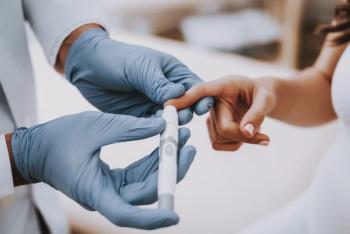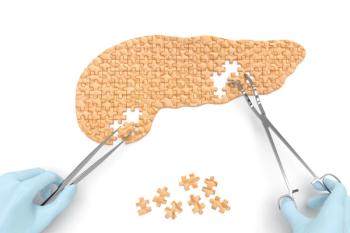
Pharmacy Residents Valuable in Oncology Care
Pharmacists-in-training have a valuable impact on cancer care, according to authors of a recent journal article.
Pharmacy residents assisting pharmacists have made a significant impact on medication reconciliation, medication adherence, and other factors in cancer care, wrote Alyssa B. Bradshaw, PharmD, PGY-2 oncology pharmacy resident at Wake Forest Baptist Health in Winston-Salem, North Carolina, and Michelle Azar, PharmD candidate with the University of Michigan College of Pharmacy in Ann Arbor, Michian, in a recent
“Oncology pharmacists have demonstrated their abilities to influence patient care and positively affect quality metrics…Pharmacy residents and students are able to assist in this process and can be called upon to supplement quality care given by the team,” the authors wrote in the literature review.
For example, pharmacists at the University of Texas MD Anderson Cancer Center teamed up with a PGY-1 resident and an educational specialist to develop a pilot program for post-discharge telephone calls. The team assessed medication adherence, provided education, and addressed medication-related concerns with patients.
Of the patients the team reached via phone with within 72 hours following discharge, 58% were found to have 1 or more discrepancies with their medications.
“Although it is known that scheduled follow-up with patients after hospitalization is beneficial, time and resources are a limiting factor,” the authors wrote. “Discharge planning and follow-up are essential components of patient care and the prevention of avoidable hospital readmissions and complications. Patients with cancer are at an increased risk of transitions-of-care errors because of the complexity of their medication regimens.”
A number of studies have evaluated the impact of pharmacy student–led medication reconciliation in the ambulatory care setting, such as the infusion center of a comprehensive cancer center.
One study involved students in their introductory pharmacy practice experiences who completed medication histories for 510 hematology/oncology patients. They found that 88% had at least 1 discrepancy, the authors noted.
In a separate study, pharmacists utilized pharmacy students to complete medication histories for 60 patients and found a similar rate (83%) of at least 1 discrepancy, with 21% of those discrepancies involving a high-risk medication.
“Pharmacists-in-training can add significant value to patient care by correcting discrepancies and reducing the likelihood of medication errors,” they wrote.
Another study evaluated the impact of leveraging pharmacists-in-training to expand care by conducting discharge medication reconciliation and counseling for malignant hematology and medical oncology patients. The advanced pharmacy practice experience (APPE) student obtained admission medication histories and counseling, while the resident was responsible for discharge medication reconciliation, patient education, documentation, order verification, and providing support for obtaining medications. The clinical pharmacist assisted and coordinated the team’s activities.
During the 60-day study period, 51% of patients received discharge medication reconciliation and counseling. The team identified a mean of 1.26 medication-related problems (MRPs) at discharge for malignant hematology patients and a mean of 2.1 MRPs for medical oncology patients.
The majority of problems involved coordination of specialty medications for the malignant hematology group and the need for an additional drug in the medical oncology group. The pharmacy team made recommendations to resolve all MRPs and the acceptance rates were 89.7% and 78% for the malignant hematology and medical oncology teams, respectively.
“This study demonstrated that pharmacists-in-training can be integrated into efforts to expand pharmacist care and improve patient outcomes,” they wrote.
Although pharmacists and pharmacy trainees have made significant contributions to enhancing the quality of oncology care, there are many additional opportunities for pharmacy involvement.
“Focusing on developing new services and activities to address quality metrics and using pharmacy trainees in the process is an essential responsibility and next step for oncology pharmacists to further improve patient care while also ensuring that reimbursement is optimized,” the authors wrote.
Reference:
- Bradshaw, A, Azar M. Pharmacists-in-training implementing quality initiatives in oncology care. Journal of Hematology Oncology Pharmacy. Volume 17, Issue 2. 2020. Accessed November 9, 2020.
https://www.hoparx.org/hopa-news/volume-17-issue-2-2020/quality-initiatives
Newsletter
Pharmacy practice is always changing. Stay ahead of the curve with the Drug Topics newsletter and get the latest drug information, industry trends, and patient care tips.























